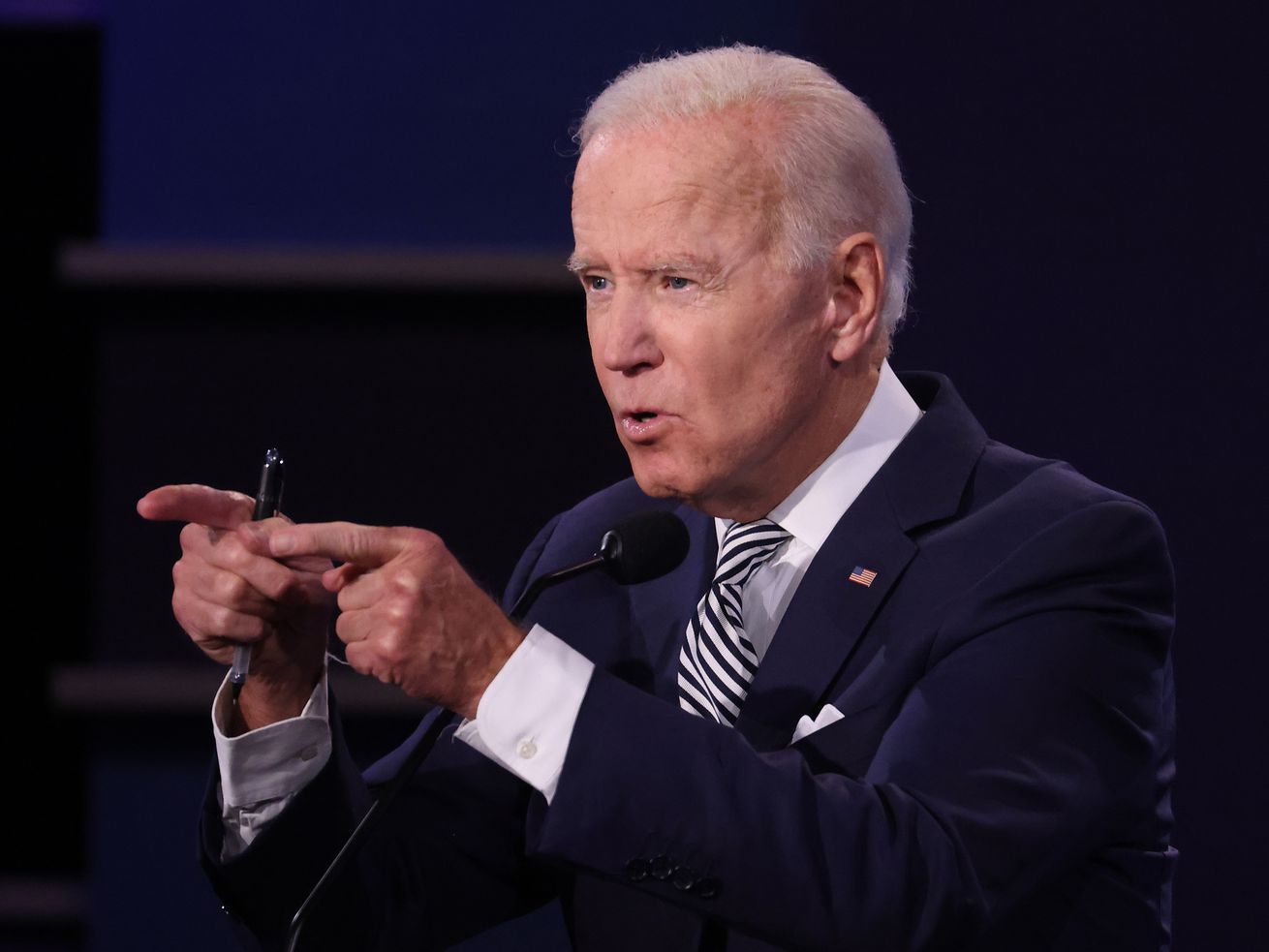 Joe Biden during the first presidential debate. | Scott Olson/Getty Images
Joe Biden during the first presidential debate. | Scott Olson/Getty Images
An absurd moment from an absurd night.
There was one moment in Tuesday’s chaotic presidential debate that really crystallized the entire awful experience: an exasperated former Vice President Joe Biden saying, “Will you shut up, man?” to President Donald Trump.
The context was, as with most of the debate, strange. The moderator, Fox News’s Chris Wallace, asked Biden whether he would abolish the filibuster and add new justices to the Supreme Court if elected. Such measures would depend heavily on who wins the Senate, but the president would set the tone and the Democratic nominee has been cagey on where he stands. At the debate, he launched into a seemingly canned response designed to dodge commitment one way or another.
During Biden’s answer, Trump interrupted and heckled him — as he had throughout the entire debate. Eventually, when Trump interrupted to accuse Biden of preparing to add “radical left” justices to the high court, Biden seemed to have had enough — and told the president of the United States to “shut up.”
"Will you shut up, man?" -- Biden to Trump pic.twitter.com/F1oX6VM7Wz
— Aaron Rupar (@atrupar) September 30, 2020
Nobody looks good here. Biden’s answer was evasive and boring, politician-like in the worst way. Wallace proved himself incapable of preventing this from descending into chaos.
But let’s not lose track of what really caused Biden’s retort. Trump seems to have used interruption as his central strategy, attempting to fluster Biden and prevent him from making actual substantive arguments. Instead of engaging on the merits, Trump deliberately turned the first presidential debate into a carnival.
In that sense, it felt good to have Biden tell Trump off. He really deserved it!
But in another, deeper sense, it felt awful. Remember, Trump is the incumbent. The character of the man currently leading our country was on display tonight, and it wasn’t pretty.
Millions turn to Vox each month to understand what’s happening in the news, from the coronavirus crisis to a racial reckoning to what is, quite possibly, the most consequential presidential election of our lifetimes. Our mission has never been more vital than it is in this moment: to empower you through understanding. But our distinctive brand of explanatory journalism takes resources. Even when the economy and the news advertising market recovers, your support will be a critical part of sustaining our resource-intensive work. If you have already contributed, thank you. If you haven’t, please consider helping everyone make sense of an increasingly chaotic world: Contribute today from as little as $3.
Vox - All https://ift.tt/2S7PgkE September 30, 2020 at 05:16AM
Comments
Post a Comment